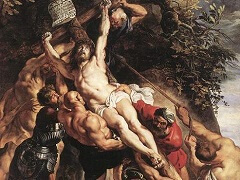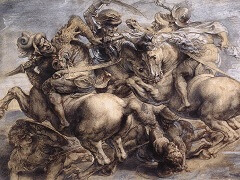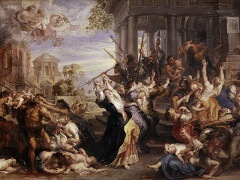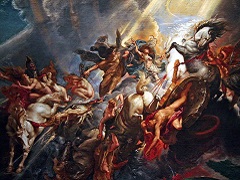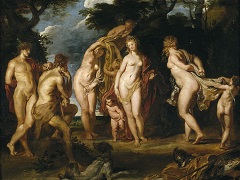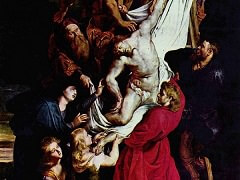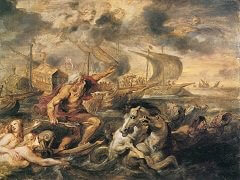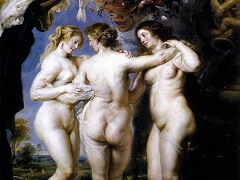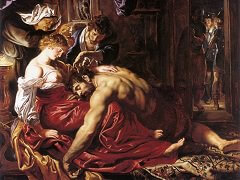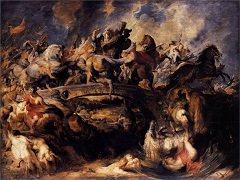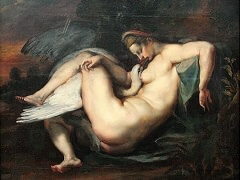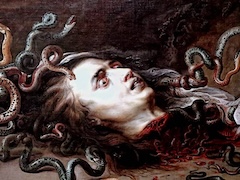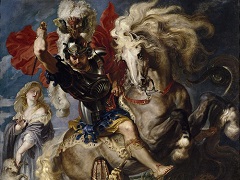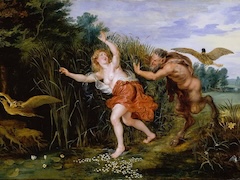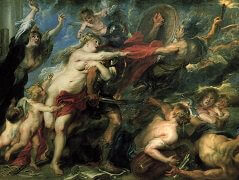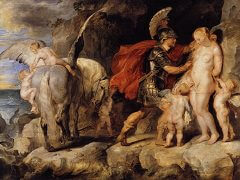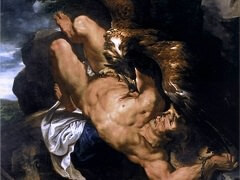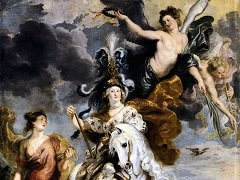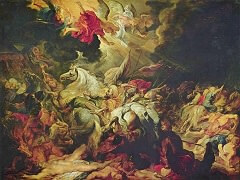The Lamentation, 1609 by Peter Paul Rubens
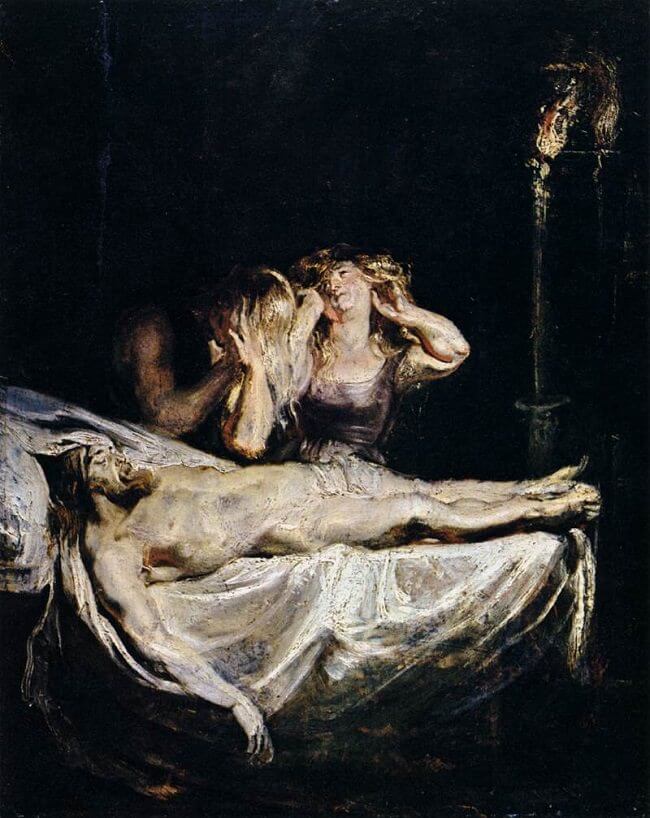
The naked body of Christ lies stretched out on a bier, which occupies almost the entire breadth of the panel. Behind the bier the grief-stricken women, the Virgin and Mary Magdalene, stand tearing at their long, flowing hair. Two large torches in the background cast a flickering light over the scene, so that only the figures and the shroud stand out in the darkness of the room.
The painter treated the theme of the Lamentation on several occasions. In Rubens' development of the subject, however, the Berlin sketch stands alone in that it was never followed up or even completed. The powerful effect produced by the three figures placed at right angles and reinforced by the uncannily empty areas of darkness might have been difficult to achieve in a larger format; the sketch bears all the signs of being a first idea. The modelling of the male body, the subtle use of shadow in the white cloth and not least the blonde tresses (rendered with a wide brush) which envelop the faces of the weeping women, all reveal the masterly assurance of the great Flemish artist.
The women's violent gestures, the dramatic light-effect and the realism of the naked body were undoubtedly inspired by impressions gained while Rubens was in Italy, and in particular in Rome by the art of Caravaggio and Titian. We know that, during the years he spent in the south, the painter became preoccupied with the Lamentation as a theme. It is, therefore, not unreasonable to count this sketch among the works he produced in Italy, particularly as it was purchased from an Italian collection. Equally, however, the colours and brushwork of the small Lamentation suggest that, despite Rubens' southern memories, it may have been painted shortly after his return to Antwerp in 1609. That he continued for a long time to draw on the artistic experience he had gained in Italy is shown by the pictures he subsequently painted.

